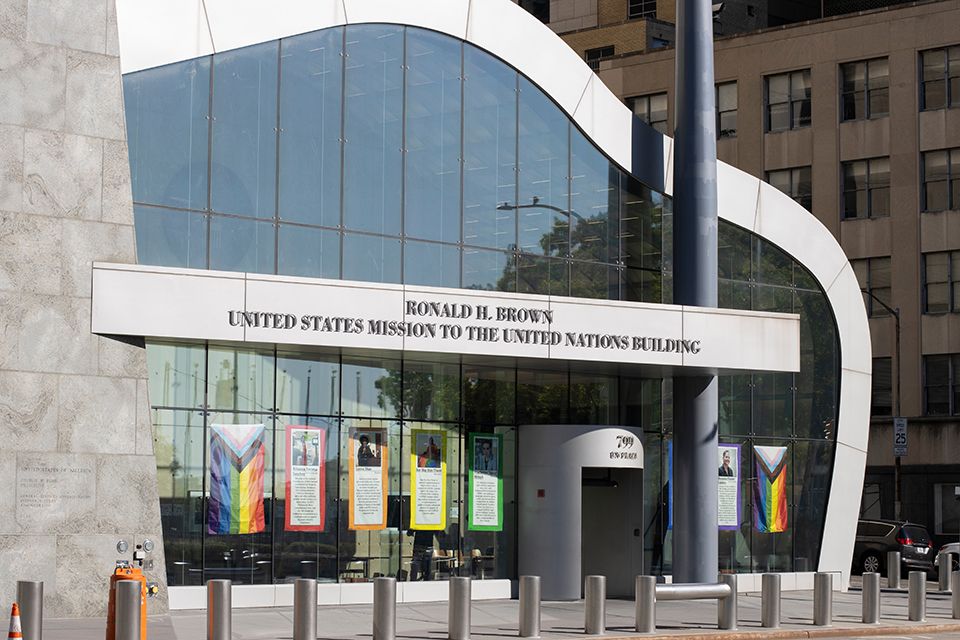In his recent opinion piece in the Wall Street Journal, John Bolton argues that the United Nations (UN) is a better target for Donald Trump’s ire than the North Atlantic Treaty Organization (NATO). He reiterates his 1994 claim that “you could lose the top 10 floors of the U.N. Secretariat building and it wouldn’t make a bit of a difference,” and argues that US contributions to the UN are unduly burdensome taxes.
These assertions make for good sound bites but are deeply disingenuous. For starters, let’s take a look of what actually happens in the top ten floors of the UN Secretariat building. These floors house numerous departments and offices of the UN Secretariat, including those that work on disarmament (increasingly relevant given the increasing rhetoric and growing risk of nuclear war), promotion and protection of human rights, coordination of humanitarian aid (with over USD 46 million required in 2024 to help 180.5 million people in need of life-saving assistance and protection), prevention and peacebuilding, and peace operations. The efforts of these departments and offices have a meaningful and measurable effect on improving the lives and livelihoods of populations around the world.
Let’s also unpack the Ambassador’s assertions that the US does not get value for money from its membership in the UN. It is true that the US contributed USD 18.3 billion in 2022. Bolton implies that the majority of these are assessed contributions. In fact, only approximately USD 3.1 billion of US contributions in 2022 consisted of assessed contributions, covering the US share of the costs of the UN, UN peacekeeping operations, and thirteen specialized agencies in the broader UN system. In 2022, the US spent 3.47 percent of its GDP on defense spending, well above the 2 percent NATO target. In the same period, the USD 3.1 billion in US assessed contributions to the UN system represented a paltry 0.01 percent of their GDP, or the rough equivalent of the cost of ten days of the US war in Afghanistan.
Bolton argues that alliances such as NATO reduce the burden of defense expenditures on the US while contributions to the UN only increase burdens. In fact, the UN represents a classic example of burden sharing at its best. Even though the US represented 25.2 percent of global GDP in 2022, it received an effective discount in its contributions to the UN system, paying 23.7 percent of the total amount assessed to all member states.
Working through the UN is also cost-effective for achieving US foreign policy and national security objectives.
A US Government Accountability Office study from 2007 found that a UN peacekeeping mission cost less than half of what a unilateral US intervention would have cost, and this finding was reaffirmed in a 2018 follow-up study. As the US is currently responsible for only 26 percent of the cost of peacekeeping operations, participation in the UN means that the US is able to help meet such requirements at just 13 percent of the cost of a unilateral US deployment. And as the US is a permanent member of the UN Security Council, it is able to ensure that all decisions of the Security Council are in line with US interests.
Bolton argues that the US should shift its contributions from assessed contributions to voluntary contributions. In fact, the majority of US contributions to the UN system already consist of voluntary contributions. A small amount of voluntary funding covers core funding for agencies such as the United Nations Children’s Fund (UNICEF) while the lion’s share—over USD 14.3 billion in 2022 and nearly 80 percent of total US contributions—consists of earmarked funding used only for US priorities in areas such as humanitarian assistance, global health, security, and development.
US participation in the UN is not an act of charity. Bolton conveniently forgets that the US was instrumental in the founding of the United Nations, and that membership in the UN serves hard US national security interests. If the US were to leave the UN, the resulting leadership void would be filled by others who would seek to use the machinery of the multilateral system to their own advantage, against US interests. Indeed, one of the most striking consequences of Trump’s approach towards undermining the UN system has been the rise of China’s voice in almost all processes, public and private. A constructive and more proactive role for China in multilateralism should be welcomed and is necessary to meet coming global challenges, but a balance is in the interest of all countries, major powers included. Better balance will not be served by US attacks on the premier global institution.
Could the UN do better? Yes, of course—the UN needs to adapt to new challenges and avoid waste while becoming more inclusive. Yet is has shown the ability to adapt many times over its history. In recent decades, for example, it has took a leading role on climate action, and it has grounded a consensus vision of development in a fragmented world. Ultimately, when considering why a strong UN is part of core US national interests, it is important to recall that the objective of saving future generations from the scourge of war sits at the heart of the UN’s work. The efforts by the UN to maintain global stability in the face of repeated crises makes all countries—including the US—safer and more prosperous.
